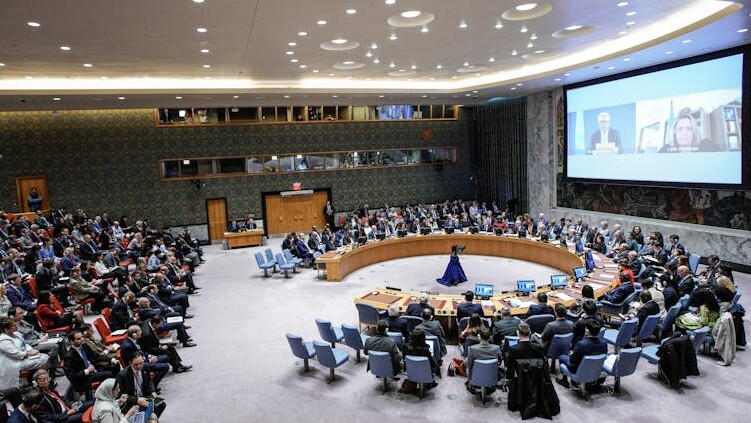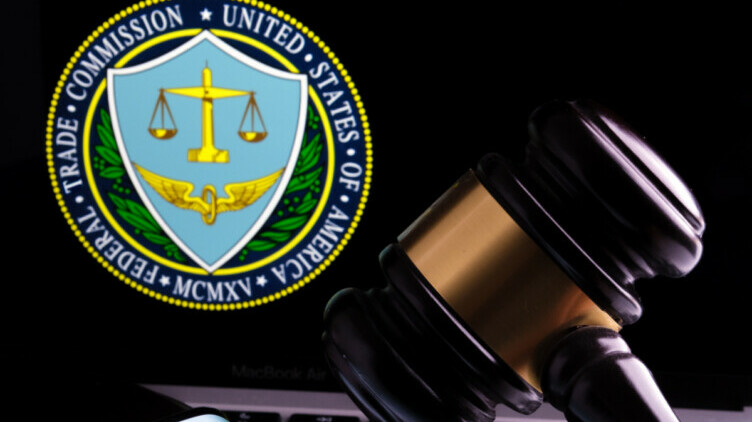FTC New Impersonation Scams Rule Effective Today
Government taking action Against Scams!
Authors:
• SCARS Editorial Team – Society of Citizens Against Relationship Scams Inc.
• Federal Trade Commission
About This Article
The FTC’s new rule targeting government and business impersonation scams takes effect today, April 1st, 2024, aiming to combat the soaring losses reported by consumers, which surpassed $1.1 billion last year alone.
The rule addresses the most common tactics employed by scammers, such as fake account security alerts and phony subscription renewals, and highlights the rise in text and email-based scams alongside declining phone calls. Notably, bank transfers and cryptocurrency payments have become the predominant methods used by victims, prompting the FTC to propose stronger measures, including prohibiting the impersonation of individuals and facilitating scams.
The agency seeks public input to enhance its arsenal against these fraudulent practices, emphasizing the need for collective efforts to safeguard consumers and hold impersonators accountable.

FTC Announces Impersonation Scams Rule Goes into Effect Today April 1st, 2024
New Scam Data shows more than $1.1 billion in Reported Losses to Government and Business Impersonation Scams
According to the FTC
As the Federal Trade Commission’s new rule on government and business impersonation goes into effect today, the agency is highlighting new data on the most common ways consumers are targeted by these treacherous scams. Combined, reported losses to these impersonation scams topped $1.1 billion for the year, more than three times what consumers reported in 2020.
The new data spotlight reveals the five most commonly reported ways that government and business impersonators convince consumers to turn over their hard-earned money: copycat account security alerts; phony subscription renewals; fake giveaways, discounts, or money to claim; bogus problems with the law; and made-up package delivery issues.
In addition, the spotlight highlights two key trends since 2020 when it comes to government and business impersonation scams: how consumers are contacted by scammers and how they pay scammers. Reports of text messages and email are trending up as phone calls decline. When it comes to payment methods, reported losses by bank transfers and cryptocurrency outrank every other payment method used to pay these scammers. Bank transfers account for about 40 percent of reported losses to government and business impersonators in 2023, followed by cryptocurrency at 21 percent of reported losses. Reported losses using both payment methods have increased many times over since 2020.
Today marks the effective date of the FTC’s new rule on government and business impersonation, which was finalized last month (see below.) The rule gives the agency stronger tools to combat and deter scammers who impersonate government agencies and businesses, enabling the FTC to file federal court cases seeking to get money back to injured consumers and civil penalties against rule violators.
The FTC is also accepting public comments until April 30, 2024, on a supplemental notice of proposed rulemaking that would prohibit the impersonation of individuals and prohibit providing scammers with the means and instruments to execute such scams.
“The proposed rule will expand the Commission’s toolkit to combat the significant harm caused by government and business impersonation frauds,” said Samuel Levine, Director of the FTC’s Bureau of Consumer Protection. “We look forward to comments from the public on our efforts to deter fraud, hold impersonators accountable, and secure redress for consumers.”
Government and business impersonators can take many forms, posing as, for example, a lottery official, a government official or employee, or a representative from a well-known business or charity. Impersonators may also use implicit representations, such as misleading domain names and URLs and “spoofed” contact information, to create an overall net impression of legitimacy. These scammers are fishing for information they can use to commit identity theft or seek monetary payment, often requesting funds via wire transfer, gift cards, or increasingly cryptocurrency.
Government and business impersonation scams have cost consumers billions of dollars in recent years, and both categories saw significant increases in reports to the FTC in 2023. The rule authorizes the agency to fight these scams more effectively.
For example, the rule would enable the FTC to directly seek monetary relief in federal court from scammers that:
- Use government seals or business logos when communicating with consumers by mail or online.
- Spoof government and business emails and web addresses, including spoofing “.gov” email addresses or using lookalike email addresses or websites that rely on misspellings of a company’s name.
- Falsely imply government or business affiliation by using terms that are known to be affiliated with a government agency or business (e.g., stating “I’m calling from the Clerk’s Office” to falsely imply affiliation with a court of law).
SCARS Analysis
This new rule opens the door wide in helping to limit impersonation scams across all technologies and platforms.
While there will likely be legal challenges, we believe that this finally chips away at the Communications Decency Act, by making specific types of activities illegal on social media and other internet publications, as well as all other communication mediums.
What it does not do is specify who is liable for the prohibited actions. This may be its most powerful aspect because it may allow liability to extend to the enablers of the prohibited actions as well as the creators and perpetrators. Further legal definition of this will definitely be required, but we believe this will cause far greater attention to this to be paid by the major technology and social media platforms. In addition, we expect a flood of civil litigation (private causes of action) to emerge from this new rule against tech companies for their failures in complying with its requirements.
However, now that it is published and in effect, the legal community will have to more fully evaluate the potential for enforcement and its effects on liability.
Trade Regulation Rule on Impersonation of Government and Businesses
Text of Rule
AGENCY:
Federal Trade Commission.
ACTION:
Final rule.
SUMMARY:
This final rule prohibits the impersonation of government, businesses, and their officials or agents in interstate commerce. This document contains the text of the final rule and the rule’s Statement of Basis and Purpose (“SBP”), including a Regulatory Analysis.
DATES:
This rule is effective April 1, 2024.
16 CFR PART 461—RULE ON IMPERSONATION OF GOVERNMENT AND BUSINESSES
461.1
Definitions.
461.2
Impersonation of Government Prohibited.
461.3
Impersonation of Businesses Prohibited.
Authority: 15 U.S.C. 41 through 58.
§ 461.1
Definitions.
As used in this part:
Business
means a corporation, partnership, association, or any other entity that provides goods or services, including not-for-profit entities.
Government
includes federal, state, local, and tribal governments as well as agencies and departments thereof.
Materially
means likely to affect a person’s choice of, or conduct regarding, goods or services.
Officer
includes executives, officials, employees, and agents.
§ 461.2
Impersonation of Government Prohibited.
It is a violation of this part, and an unfair or deceptive act or practice to:
(a) materially and falsely pose as, directly or by implication, a government entity or officer thereof, in or affecting commerce as
commerce
is defined in the Federal Trade Commission Act (15 U.S.C. 44); or
(b) materially misrepresent, directly or by implication, affiliation with, including endorsement or sponsorship by, a government entity or officer thereof, in or affecting commerce as
commerce
is defined in the Federal Trade Commission Act (15 U.S.C. 44).
§ 461.3
Impersonation of Businesses Prohibited.
It is a violation of this part, and an unfair or deceptive act or practice to:
(a) materially and falsely pose as, directly or by implication, a business or officer thereof, in or affecting commerce as commerce is defined in the Federal Trade Commission Act (15 U.S.C. 44); or
(b) materially misrepresent, directly or by implication, affiliation with, including endorsement or sponsorship by, a business or officer thereof, in or affecting commerce as commerce is defined in the Federal Trade Commission Act (15 U.S.C. 44).
By direction of the Commission.
April J. Tabor,
Secretary.
Please Rate This Article
Please Leave Us Your Comment
Also, tell us of any topics we might have missed.
Thank you for your comment. You may receive an email to follow up. We never share your data with marketers.
-/ 30 /-
What do you think about this?
Please share your thoughts in a comment above!
-/ 30 /-
What do you think about this?
Please share your thoughts in a comment above!
SCARS LINKS: AgainstScams.org RomanceScamsNOW.com ContraEstafas.org ScammerPhotos.com Anyscam.com ScamsNOW.com
reporting.AgainstScams.org support.AgainstScams.org membership.AgainstScams.org donate.AgainstScams.org shop.AgainstScams.org
youtube.AgainstScams.org linkedin.AgainstScams.org facebook.AgainstScams.org
ARTICLE RATING
TABLE OF CONTENTS
CATEGORIES
MOST POPULAR COMMENTED ARTICLES
POPULAR ARTICLES
U.S. & Canada Suicide Lifeline 988
![NavyLogo@4x-81[1]](https://scamsnow.com/wp-content/uploads/2025/04/NavyLogo@4x-811.png)
ARTICLE META
WHAT PEOPLE ARE TALKING ABOUT LATEST SITE COMMENTS
See Comments for this Article at the Bottom of the Page
on Substance Abuse Susceptibility And Scam Victims – 2024: “It is understandable how some would feel that alcohol or substance abuse would be helpful in handling their feelings after…” Jul 1, 20:36
on Scam Victims Use Work To Avoid Healing: “The last 6 years have been the most difficult of my life. The pandemic, having both parents in the hospital…” Jun 29, 18:38
on Entitlement Mentality And How Scam Victims Often Lose Their Path To Recovery – 2024: “Thank you for this discussion of entitlement. I can see from the descriptions listed that I have not felt entitlement.…” Jun 29, 18:22
on Samurai Wisdom and Rituals for Clearing the Mind After Scam Trauma – 2025 – [VIDEOS]: “A great guide on how to move forward in our recovery process with a calm mind, cleansed on an ongoing…” Jun 28, 07:34
on Delayed Gratification and Patience in Scam Victim Recovery – 2025 – [VIDEOS]: “We want to recover quickly and… we make new mistakes. How not to speed up the recovery process, how to…” Jun 28, 06:41
on The Unique Injury Of Betrayal Trauma On Scam Victims – 2024: “Primarily because you did not see it coming” Jun 27, 23:57
on Changes In A Scam Victim’s Life: “I really detest the way my trust in others has been affected by the scamming I went through. I used…” Jun 27, 14:47
on The Unique Injury Of Betrayal Trauma On Scam Victims – 2024: “Betrayal Trauma is the worst feeling ever. Why does it seem so much worse when a scammer does that to…” Jun 27, 14:34
on EMDR Therapy For Scam Victims’ Trauma – A Part Of The Recovery Process For Many – 2024: “Very comprehensive article explaining all aspects of EMDR. I’d only heard of it before and now I have a much…” Jun 26, 19:01
on Forgiving Yourself After Surviving a Romance or Investment Scam – 2025: “Thank you for this valuable article. Self-forgiveness was for me the biggest step that led to my recovery. That also…” Jun 26, 17:28
on Counseling And Your Native Language: “These points make perfect sense. I can’t imagine trying to express complex emotions in a second language. I realize many…” Jun 26, 16:05
on Thought-Terminating Cliches – How What You and Others Say Stops Critical Thinking and Recovery for Scam Victims – 2025: “I didn’t realize that these “innocent phrases” clichés ending thoughts, can have such effect / negative -inhibiting / on our…” Jun 26, 14:48
on Scam Victim Resistance In Support Groups Therapy Or Counseling Can Destroy Opportunities For Recovery – 2024: “Working with either a support group or therapist to me means a self commitment to actively participating in the therapy.…” Jun 24, 21:01
on ‘I Just Want To Forget It’ – Denial & Avoidance Are Natural But Will Not Help Scam Victims On Their Path To Recovery From Scams – 2024: “My financial loss, the shock and betrayal of the crime ending all combined to fray my nerves and spend hours…” Jun 24, 20:10
on You Hate Being Told What To Do? How Your Rebellious Mentality Can Sabotage Your Recovery – 2025: “I am a bit of a rebel, and the moment someone tells me to do something, worse, does it even…” Jun 24, 15:04
on You Hate Being Told What To Do? How Your Rebellious Mentality Can Sabotage Your Recovery – 2025: “You are very welcome” Jun 24, 03:01
on You Hate Being Told What To Do? How Your Rebellious Mentality Can Sabotage Your Recovery – 2025: “This is a great article, which makes perfect sense as to why anyone would resist the help offered to them.…” Jun 23, 20:01
on Scam Victims’ Responsibilities – 2021 [Updated 2025]: “Thank you for this article. As I continue my journey, I focus on the here and now and let the…” Jun 21, 16:26
on Scam Victims Avoid Or Escape The Aftermath Of Scams – How Denial And Distraction Avoid Confronting Reality – 2024: “In the earliest days after my crime I felt powerless, helpless and weak. I had been through so much in…” Jun 21, 14:46
Important Information for New Scam Victims
Please visit www.ScamVictimsSupport.org – a SCARS Website for New Scam Victims & Sextortion Victims
SCARS Institute now offers a free recovery program at www.SCARSeducation.org
Please visit www.ScamPsychology.org – to more fully understand the psychological concepts involved in scams and scam victim recovery
If you are looking for local trauma counselors, please visit counseling.AgainstScams.org
If you need to speak with someone now, you can dial 988 or find phone numbers for crisis hotlines all around the world here: www.opencounseling.com/suicide-hotlines
Statement About Victim Blaming
Some of our articles discuss various aspects of victims. This is both about better understanding victims (the science of victimology) and their behaviors and psychology. This helps us to educate victims/survivors about why these crimes happened and not to blame themselves, better develop recovery programs, and help victims avoid scams in the future. At times, this may sound like blaming the victim, but it does not blame scam victims; we are simply explaining the hows and whys of the experience victims have.
These articles, about the Psychology of Scams or Victim Psychology – meaning that all humans have psychological or cognitive characteristics in common that can either be exploited or work against us – help us all to understand the unique challenges victims face before, during, and after scams, fraud, or cybercrimes. These sometimes talk about some of the vulnerabilities the scammers exploit. Victims rarely have control of them or are even aware of them, until something like a scam happens, and then they can learn how their mind works and how to overcome these mechanisms.
Articles like these help victims and others understand these processes and how to help prevent them from being exploited again or to help them recover more easily by understanding their post-scam behaviors. Learn more about the Psychology of Scams at www.ScamPsychology.org
SCARS INSTITUTE RESOURCES:
If You Have Been Victimized By A Scam Or Cybercrime
♦ If you are a victim of scams, go to www.ScamVictimsSupport.org for real knowledge and help
♦ Enroll in SCARS Scam Survivor’s School now at www.SCARSeducation.org
♦ To report criminals, visit https://reporting.AgainstScams.org – we will NEVER give your data to money recovery companies like some do!
♦ Follow us and find our podcasts, webinars, and helpful videos on YouTube: https://www.youtube.com/@RomancescamsNowcom
♦ Learn about the Psychology of Scams at www.ScamPsychology.org
♦ Dig deeper into the reality of scams, fraud, and cybercrime at www.ScamsNOW.com and www.RomanceScamsNOW.com
♦ Scam Survivor’s Stories: www.ScamSurvivorStories.org
♦ For Scam Victim Advocates visit www.ScamVictimsAdvocates.org
♦ See more scammer photos on www.ScammerPhotos.com
You can also find the SCARS Institute on Facebook, Instagram, X, LinkedIn, and TruthSocial
Psychology Disclaimer:
All articles about psychology and the human brain on this website are for information & education only
The information provided in this and other SCARS articles are intended for educational and self-help purposes only and should not be construed as a substitute for professional therapy or counseling.
Note about Mindfulness: Mindfulness practices have the potential to create psychological distress for some individuals. Please consult a mental health professional or experienced meditation instructor for guidance should you encounter difficulties.
While any self-help techniques outlined herein may be beneficial for scam victims seeking to recover from their experience and move towards recovery, it is important to consult with a qualified mental health professional before initiating any course of action. Each individual’s experience and needs are unique, and what works for one person may not be suitable for another.
Additionally, any approach may not be appropriate for individuals with certain pre-existing mental health conditions or trauma histories. It is advisable to seek guidance from a licensed therapist or counselor who can provide personalized support, guidance, and treatment tailored to your specific needs.
If you are experiencing significant distress or emotional difficulties related to a scam or other traumatic event, please consult your doctor or mental health provider for appropriate care and support.
Also read our SCARS Institute Statement about Professional Care for Scam Victims – click here
If you are in crisis, feeling desperate, or in despair, please call 988 or your local crisis hotline.
More ScamsNOW.com Articles
A Question of Trust
At the SCARS Institute, we invite you to do your own research on the topics we speak about and publish. Our team investigates the subject being discussed, especially when it comes to understanding the scam victims-survivors’ experience. You can do Google searches, but in many cases, you will have to wade through scientific papers and studies. However, remember that biases and perspectives matter and influence the outcome. Regardless, we encourage you to explore these topics as thoroughly as you can for your own awareness.














![scars-institute[1]](https://scamsnow.com/wp-content/uploads/2025/04/scars-institute1.png)
![niprc1.png1_-150×1501-1[1]](https://scamsnow.com/wp-content/uploads/2025/04/niprc1.png1_-150x1501-11.webp)

Leave a Reply